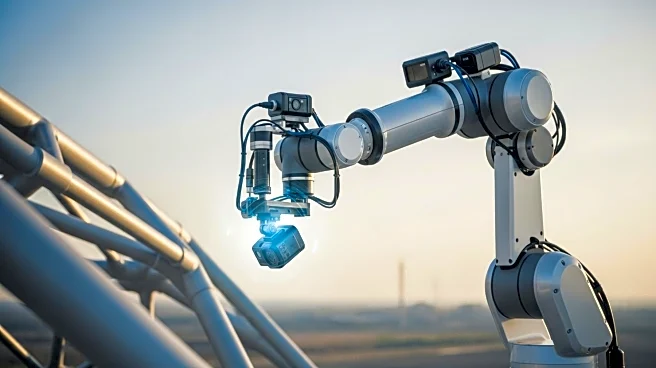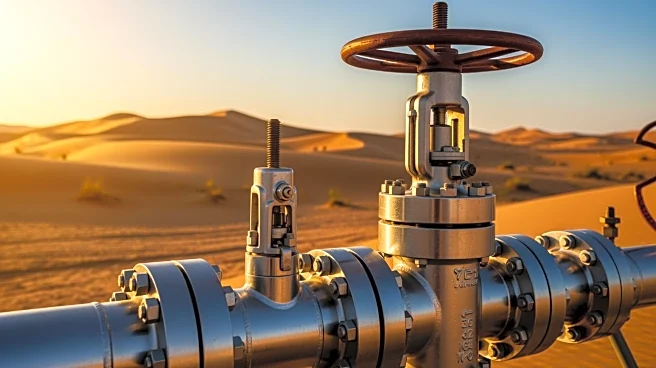What's Happening?
The integration of AI with field robotics is transforming industrial inspections, moving beyond traditional automation. Robots equipped with sensors are deployed in challenging environments like chemical plants and high-radiation zones, where human presence is limited. These robots detect anomalies such as gas leaks, temperature changes, and structural cracks. However, the real advancement comes from AI-powered checklists that interpret these findings, updating workflows and suggesting corrective actions. This approach allows inspections to become adaptive processes, linking robotic observations with human expertise to ensure comprehensive and meaningful results.
Why It's Important?
AI-driven inspections offer significant advantages in industrial settings, enhancing safety and efficiency. By automating the detection and analysis of potential issues, companies can prevent costly downtime and reduce risks to human workers. The ability to interpret data in real-time and adapt inspection processes ensures that anomalies are addressed promptly, improving operational reliability. This shift from automation to intelligence represents a critical evolution in industrial practices, emphasizing the importance of AI in enhancing human decision-making and oversight.
What's Next?
The continued development of AI-powered inspection systems is likely to lead to broader adoption across various industries. Companies may invest in expanding their robotic fleets and integrating AI technologies to improve inspection accuracy and efficiency. As these systems become more sophisticated, they could redefine industry standards for safety and compliance, prompting regulatory bodies to update guidelines and requirements. Collaboration between technology providers and industrial stakeholders will be crucial in advancing these innovations.
Beyond the Headlines
The use of AI in inspections raises questions about the future role of human workers in industrial settings. While robots and AI can enhance safety and efficiency, they also challenge traditional job roles, necessitating a shift in workforce skills and training. The ethical implications of relying on AI for critical decision-making processes must be considered, ensuring that human oversight remains integral to operations.








